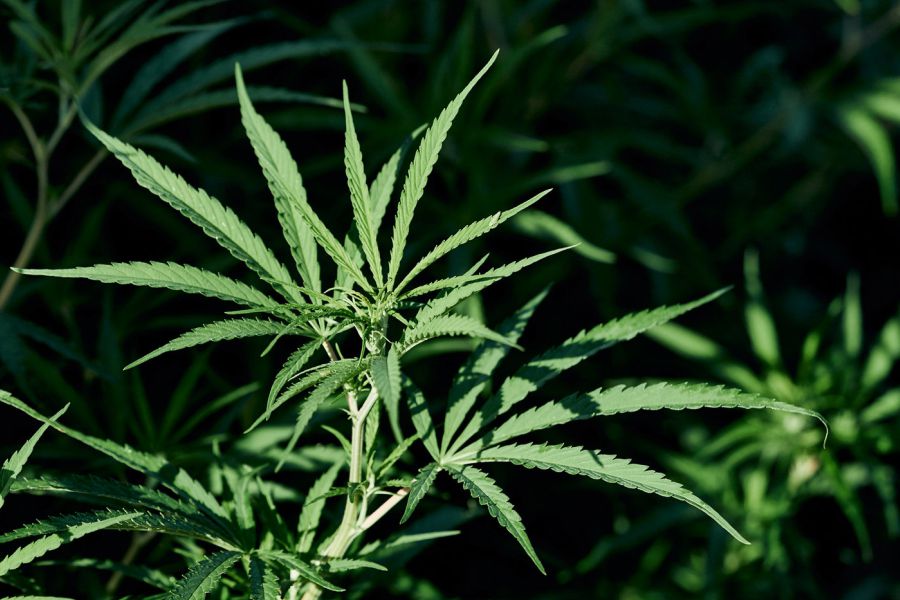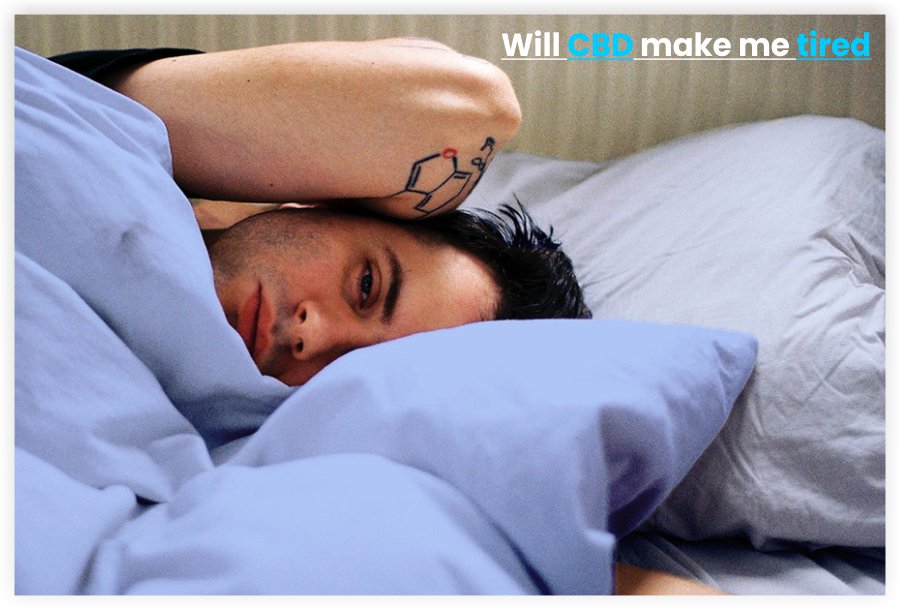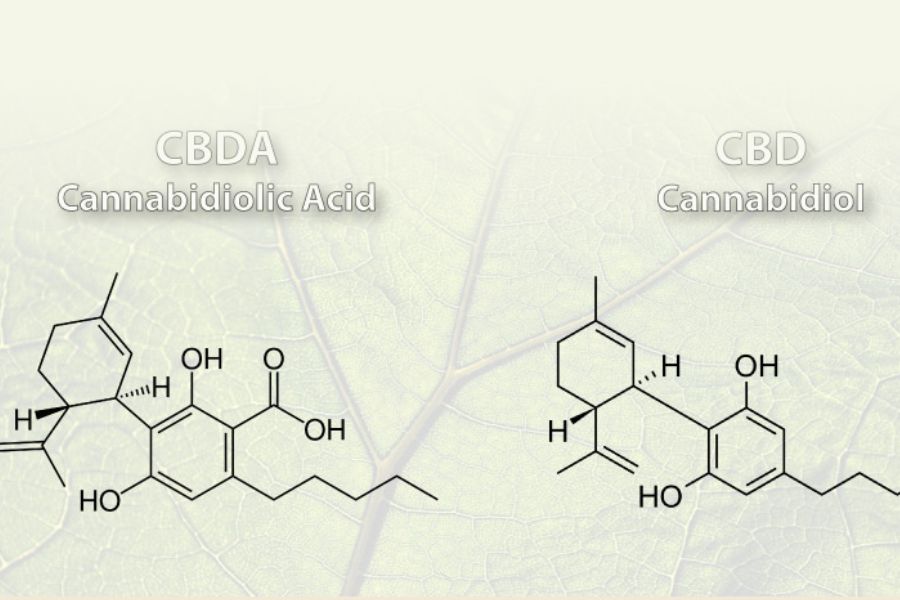
CBD comes in various forms, including lotions, pills, oils, and gummies. These might differ in components and quantities, and there isn’t a lot of study on what dose would be effective or safe to treat specific ailments. This is where the need for a CBD dosage chart steps in. A CBD dosage chart will ensure that you consume the proper quantity and keep side effects at bay.
The second most prevalent cannabinoid discovered in marijuana is cannabidiol (CBD). CBD’s popularity for medicinal uses has skyrocketed in recent years. CBD, unlike tetrahydrocannabinol (THC), has no psychotropic effects. CBD can treat anything from anxiety to sleep difficulties. To decide whether CBD is good for you, evaluate its possible benefits, adverse effects, and existing information on safe amounts.
Benefits of CBD
Relieving depression:
CBD may potentially be helpful as a therapy for depression, according to some studies. According to research, cannabinoids may alter how the brain responds to serotonin, playing an essential role in mood. Serotonin levels are occasionally low in those who suffer from depression. CBD may assist the brain in making better utilization of available serotonin.
Improving sleep:
While the causes are not fully understood, CBD potentially appears to treat sleep disorders, and further study is need. One research, for example, discovered that those who took CBD also reported increases in the quality of their sleep.
Anxiety reduction:
Anxiety is one of the most frequent mental health problems, impacting over 20% of American adults each year. According to research, CBD may help decrease acute symptoms of various anxiety-related illnesses, including generalized anxiety disorder, obsessive-compulsive disorder, and social anxiety disorder.
Therapeutic advantages:
CBD may offer therapeutic advantages for additional illnesses and its mental health effects. They are effective in the treatment of:
Alzheimer’s illness
Arthritis
Coronary artery disease
Diabetes
Infection
Inflammation
Multiple sclerosis (M.S.)
Nausea
Pain
Psychosis
It’s vital to realize that these advantages haven’t been establish convincingly. More study is require to identify CBD’s function in treating various illnesses and health issues.
Research has suggested that CBD may have a variety of physical and mental health applications. However, more study is need to understand better the substance’s potential uses and potential long-term adverse effects.
A thorough review published in The Lancet Psychiatry in 2019 examined previously published research. The study found minimal evidence to support the use of CBD for mental health objectives and that further research is need to justify its use to treat symptoms of disorders including anxiety, depression, and insomnia. Many of the studies include were small, involve few people, and were not randomized controlled trials. This shows that further studies with a more significant number of participants and well-designed trials are needed to understand better if, how, and why CBD helps.
While it is essential to realize that there is still a lot we don’t know about CBD and its effects, it is something you might want to try to see if you get many advantages.

CBD dosage chart – How Much Should You Consume?
If you decide to take CBD, keep in mind that there is no commonly accepted dosage. Dosages utilized in research studies differ. Research reveals that people may react differently to different doses. Therefore the optimum quantity for your requirements may vary.
Dosages of CBD – Best CBD dosage for me
Following are some doses that have been utilized in research studies for various conditions:
- 300 to 600 mg for anxiety 3 mg per day for bowel disease.
- 7 mg per day for cancer-related pain50 to 600 mg per day8 mg per day for Parkinson’s disease.
- Inadequate sleep: 25 mg per day 2
- Psychosis: 600 mg daily 7
- Anxiety levels of people who participated in the research show improvement after taking single doses of CBD, ranging from 300 to 600 mg.
- These findings helped us conclude that CBD may have potential as a therapy for acute anxiety symptoms.
CBD dosage post surgery:
It is critical to note that you should always consult with your doctor before taking CBD if you have severe mental or physical health condition symptoms. CBD may aggravate symptoms or interfere with other drugs you are taking.
Examining the dose information for an FDA-approved CBD product might also be beneficial. The beginning dose for Epidiolex, an FDA-approved cannabis-derived medicine intended to treat seizures in patients with certain forms of epilepsy, is 5 milligrams per kilogram of body weight. This dose can be gradually raise to 5 mg per kilogram of body weight twice daily.
Other CBD products are not FDA approve and did not come with official dose recommendations. This can make determining how much you need challenging, but there are certain things you can think about that may assist.
Determine your CBD dosage sensitivity:
Your tolerance to CBD may also decide how much you require. If you are sensitive to the effects of CBD, start with a tiny dose. Some people may discover that the drug does not influence them as much as others. Therefore they may need to take a more significant amount to get positive results.
Considering individual factors before deciding CBD dosage chart:
Several considerations should be consider when deciding how much CBD to ingest, which include the formulation and concentration of the pill, oil drops, or gummies you’re taking, the symptoms you’re trying to cure, and your age, gender, weight, and overall health. Men may require a higher dose, while older adults may require a lower amount. People with bigger bodies, on average, need to take a bit more to attain the same results.
Consider the symptoms you’re attempting to relieve:
The symptoms you’re trying to lessen might also influence the CBD dosage you require to achieve outcomes. Participants in one trial who took 25mg of CBD daily experienced better sleep quality, albeit the effects were not constant. 2 However, if you treat another disease, you may require a lower or higher dose.
Consider using a CBD dosage calculator:
While the range of dosing procedures and formulations makes determining efficacy challenging, researchers note that there are various “dose-calculators” available online (such as mydosage.com) to assist individuals in picking the proper dose. 10 The accuracy of such calculators is challenging to judge, but it may be an excellent place to start.
Before experimenting with CBD, consult with your doctor. They may be able to propose a dose and assist you in better understanding any possible dangers, problems, side effects, or interactions.
Begin with a Low Dose
Kick-off your wellness regimen with 10 to 20 mg each day. Take it for a week to make sure it’s well-tolerated. You don’t have any side effects or an allergic response.
If this dose does not provide the intended results, try increasing it by 5mg per week until the ideal quantity is attained.
The quantities used in the research range from as little as 20 milligrams (mg) per day to as much as 1,500 milligrams (mg) per day.
According to the World Health Organization, clinical study doses generally vary between 100 and 800 mg per day. According to , a university study,600 mg per day appears to be safe. However, one research revealed that dosages up to 1,500 mg per day are safe and well-tolerated. To prevent taking too much, it may be advisable to begin with, a smaller dose and gradually increase the quantity required. But the research is still in bud stages, and scientists do not yet fully understand the possible long-term effects of CBD use.
How to Consume CBD
The quantity of CBD in a product might vary depending on several factors, including formulation and administration. CBD products come in various formats, such as oils, capsules, pills, nasal sprays, and gummies.
CBD oil is one of the most common methods to consume it. Dietary supplements, meals, drinks, lotions, salves, and cosmetics are examples of more recently produced items.
The CBD product you select may be determined by the condition you attempt to cure. A nutritional supplement may be beneficial to boost your overall mood.
If you’re looking to target particular symptoms of an illness, taking an oil, pill, or gummy might be a better approach to acquire a more significant, more concentrated dose.
Although topical treatments may have regional effects, they have no mental health advantages.
You may also like – CBD vs CBDA – Differences & benefits explained
Final Verdict
If you decide to take CBD to treat acute or chronic disease, consider that several factors will determine the quantity you take. Finding the correct dose generally necessitates some trial and error. The ideal method is, to begin with, a modest dose and gradually increase the amount taken until the desired benefits are achieved.


